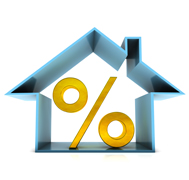 There is no denying it – real estate and interest rates work hand-in-hand, each impacting the other. Do higher rates mean lower prices or is it vice versa? Have years of low rates caused Canada’s housing prices to skyrocket?
There is no denying it – real estate and interest rates work hand-in-hand, each impacting the other. Do higher rates mean lower prices or is it vice versa? Have years of low rates caused Canada’s housing prices to skyrocket?
If rates do go up, can Canadians absorb an increase in interest rates? Canadian households are drowning in debt, according to Macleans: http://www.macleans.ca/news/canada/drowning-in-debt-is-the-new-normal-in-canada/ so can most handle a modest 1% rate increase, for example?
On July 12, the Bank of Canada raised the overnight rate to 3/4 percent for the first time in almost seven years. After years in a low-rate environment, experts agree that interest rates in Canada had nowhere to go but up, predicting that rates would grow by 1% – but not until 2018. Throughout 2016, Canadian rates remained relatively unchanged. However, economists and the federal government both agreed that interest rates had to rise at some point. Then, in September, the BOC did it again.
Let’s look at rising interest rates and the impacts they could have on real estate. When interest rates rise, thereby resulting in higher borrowing costs than many had previously planned for, it can suddenly make previously low-risk borrowers riskier. It could also mean bigger hurdles for first-time homebuyers, or suddenly high-risk homeowners looking to refinance their mortgage. As rates increase, the number of risky credit users could also increase.
TransUnion explained in a 2016 report that a 1% interest rate increase could mean payment shock for up to one million credit-active consumers. These consumers may not be able to absorb the higher payments that come with a rate increase.
For some homeowners, this could mean $50 or even $100 more each month. While cutting corners, such as eating out less or cutting out cable tv, can help absorb a small increase in monthly payments for some homeowners, some may not be able to easily adapt.
With regard to real estate and interest rates, experts and critics alike have been saying that rates were going to rise for years. Now they have, and because Canadians may have become overly confident that they wouldn’t, they may not be prepared. It has been a seller’s market for so long, thanks in part to low interest rates driving up property values, although this too has made it challenging for potential homebuyers to enter the market. Low interest rates have clearly been a contributor to Canada’s hot real estate market. People are more inclined to buy when rates are low. Now that rates have finally increased, what does this mean for Canadian families?
In a recent CBC article, experts noted that many buyers are facing challenges entering the market now due to market affordability and government legislation, but it may only be a temporary downturn: http://www.cbc.ca/news/canada/toronto/buyers-sellings-must-adapt-as-gta-housing-market-moderates-1.4204187.
Yet, in this Montreal Gazette article: http://montrealgazette.com/business/local-business/real-estate/interest-rate-increase-unlikely-to-slow-montreals-real-estate-market-qfreb and this CTV article: http://www.ctvnews.ca/business/modest-rate-hikes-to-have-little-impact-on-high-end-real-estate-sotheby-s-1.3497574, the authors suggest that this modest rate increase will have little-to-no impact on the hot markets.
This past June, the Teranet–National Bank National Composite House Price Index™ went up 2.6% – the largest June rise in the 19-year history of the index. This followed another record increase in May, and June’s historically large raise took the composite index to an all-time high for the 17th consecutive month. However, the August report marked a slight downturn, so there is undeniably movement.
What does this mean for real estate sales professionals? Changing interest rates affect numerous aspects of real estate, and aside from the price of a new home, interest rates also impact what’s available on the market and influence market demand. It’s Economics 101: the flow of capital affects supply and demand for property and, as a result, that affects property prices.
Real estate and interest rates are forever linked, and it pays to know the market so you can prepare for changes in the rates. As a subscriber to GeoWarehouse, you have access to the latest and greatest property data and reports to help you make the most informed real estate transactions. Having the edge that GeoWarehouse’s suite of tools and reports provide can help you grow your bottom line.
Visit www.geowarehouse.ca today to learn more.







